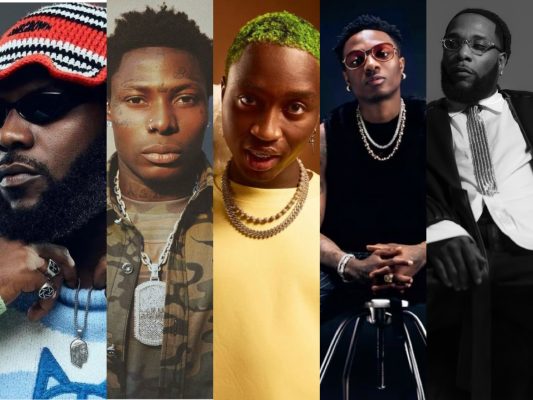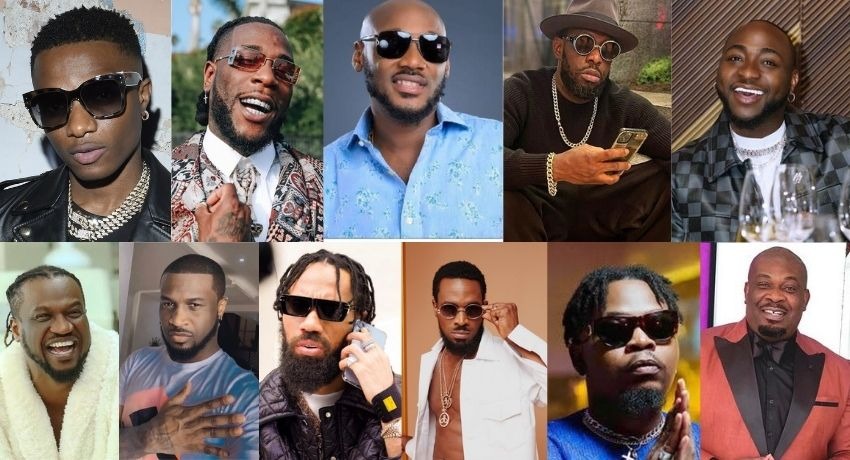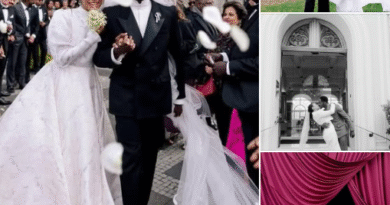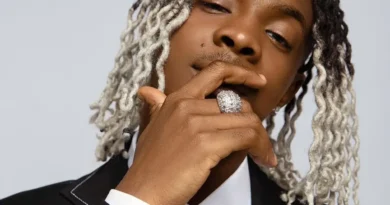How to Become a Successful Artist in Nigeria
Nigeria is a country overflowing with creativity. From Afrobeat rhythms to Nollywood films, fashion runways to bustling art galleries, the Nigerian creative industry is one of the fastest growing in the world. But standing out and building a sustainable career as an artist in Nigeria is not an easy journey. With limited infrastructure, stiff competition, and economic challenges, success requires more than raw talent—it calls for strategy, resilience, and business sense.
In this article, we’ll explore practical steps, insights, and strategies on how to become a successful artist in Nigeria—whether you are a visual artist, musician, dancer, writer, actor, or any other kind of creative.
1. Discover and Develop Your Unique Artistic Voice
Every successful artist has something unique that sets them apart. Nigeria already has thousands of painters, sculptors, musicians, photographers, and designers. If you want to thrive, you need to ask:
- What makes my work different?
- What stories am I telling that others are not?
- Why should people pay attention to me?
Developing your voice comes from consistent practice, experimenting with different techniques, and being authentic to your background, culture, and worldview. Nigerian audiences love originality—think of Fela Kuti in Afrobeat, Burna Boy’s Afro-fusion, or Njideka Akunyili Crosby’s multicultural paintings.
Tip: Keep a sketchbook, recording device, or journal. Document your ideas and refine them until you find a clear style that people can recognize as uniquely yours.
2. Invest in Skill and Continuous Learning
Talent alone is not enough. Many Nigerian artists fail because they stop learning after they master the basics. To compete locally and internationally, your skills must meet global standards.
- Take formal training: Enroll in art schools, music academies, or workshops. Institutions like Yaba College of Technology (YABATECH) and Obafemi Awolowo University have strong art programs.
- Learn online: Platforms like Coursera, Udemy, and YouTube provide affordable tutorials in visual arts, music production, creative writing, and more.
- Seek mentorship: Learn directly from established artists. A mentor can shorten your learning curve, help you avoid costly mistakes, and guide your career choices.
3. Build a Strong Portfolio
Your portfolio is your CV in the art world. Whether you are applying for grants, seeking gallery representation, or pitching to event organizers, people want to see your work.
- For visual artists, this could be a collection of high-quality photos of your paintings, sculptures, or digital art.
- For musicians, it might be demo recordings, music videos, or live performance clips.
- For writers, it could be published articles, manuscripts, or poetry anthologies.
Make sure your portfolio is professional, well-organized, and accessible online. Having a personal website or a curated Instagram feed is often more effective than carrying physical folders around.
4. Leverage Social Media and Online Platforms
In Nigeria, social media has turned unknown talents into stars. Think of how artists like Fireboy DML or visual creators like Laolu Senbanjo gained global recognition partly through online platforms.
- Instagram and TikTok are great for showcasing visual and performance art.
- YouTube works well for musicians, dancers, and filmmakers.
- Twitter/X is powerful for networking and sharing thoughts that build your creative persona.
- Art marketplaces like Saatchi Art, ArtStation, or even Etsy can help you sell globally.
Consistency is key. Post regularly, engage with your audience, and use hashtags strategically. Don’t just showcase art—tell stories about your process, challenges, and inspiration. This builds emotional connection with followers.
5. Network Relentlessly
Nigeria’s art industry thrives on relationships. Often, opportunities come not just from being talented but from being visible in the right circles.
- Attend exhibitions, music shows, book readings, and cultural festivals.
- Join artist associations like the Society of Nigerian Artists (SNA) or Performing Musicians Employers Association of Nigeria (PMAN).
- Collaborate with other creatives—joint projects can expose you to new audiences.
- Seek out residencies, fellowships, and competitions that connect you with global networks.
Remember: networking is not begging. It’s about building genuine relationships where you also provide value.
6. Treat Your Art as a Business
Many Nigerian artists fail financially because they see art as a passion but not as a business. If you want to live off your creativity, you must adopt a professional mindset.
- Pricing: Research market rates. Don’t undervalue your work, but also be realistic when starting out.
- Contracts: Always sign agreements when performing, exhibiting, or collaborating. This protects you legally.
- Multiple income streams: Relying on a single source of income can be risky. Consider teaching workshops, licensing your art, merchandising, or freelancing.
- Financial management: Open a business account, track your expenses, and reinvest profits in your craft.
Success in Nigeria’s creative industry often goes to those who combine artistry with entrepreneurship.
7. Seek Grants, Sponsorships, and Partnerships
Funding is a major challenge for Nigerian artists, but opportunities do exist. Organizations, embassies, and NGOs often provide grants, residencies, and sponsorships. Examples include:
- Lagos State Council for Arts and Culture
- British Council Nigeria (programs like Creative Enterprise)
- Art X Lagos (for visual artists)
- Goethe-Institut Nigeria
- International opportunities like the Prince Claus Fund or UNESCO programs
Don’t be afraid to apply repeatedly, even after rejections. Write compelling proposals that show not just your art, but also your impact on society.
8. Stay Resilient Against Challenges
Let’s be honest—being an artist in Nigeria is tough. You’ll face:
- Poor infrastructure (limited galleries, low record label support, unstable electricity).
- Economic instability (low purchasing power among audiences).
- Piracy and intellectual property theft.
- Family or societal pressure to abandon art for a “real job.”
The difference between those who quit and those who succeed is resilience. Many Nigerian stars faced years of rejection before their breakthrough. Persistence, faith in your talent, and adapting to challenges are crucial for survival.
9. Balance Local Relevance with Global Appeal
Nigerian culture is rich and globally admired. Artists who succeed internationally often draw deeply from their roots while presenting it in a universal language.
- Musicians mix traditional Yoruba percussion with global pop sounds.
- Writers like Chimamanda Ngozi Adichie tell Nigerian stories in ways that resonate with global audiences.
- Visual artists incorporate African motifs while engaging with contemporary global themes.
Don’t abandon your identity to “sound Western.” Instead, refine your work to compete at world-class standards while celebrating your Nigerian heritage.
10. Maintain Professionalism and Integrity
Your reputation can make or break your career. Nigerian creative industries are smaller than they appear—word spreads quickly. Keep to deadlines, respect agreements, and treat collaborators with dignity.
Also, avoid shortcuts that might harm your career long-term. Building slowly with integrity is better than blowing up overnight through controversial scandals or exploitative deals.



11. Take Care of Your Mental and Physical Health
The creative journey can be draining. Long hours, inconsistent income, and criticism can affect your wellbeing. To sustain your career:
- Rest and avoid burnout.
- Surround yourself with supportive communities.
- Seek therapy or counseling if needed.
- Exercise and eat well to stay physically strong.
Remember: your art depends on you being alive and well.
12. Keep Evolving
Success in Nigeria’s creative space is not static. Trends change quickly—what’s popular today may be outdated tomorrow. The artists who last are those who evolve while staying true to their identity.
- Musicians reinvent their sound across albums.
- Visual artists explore new mediums.
- Writers experiment with different genres.
Never stop challenging yourself. Growth ensures you remain relevant no matter how the industry shifts.
ALSO READ : Why Davido Says He’s Unstable Online
Final Thoughts
Becoming a successful artist in Nigeria is not a straight road. It’s a blend of talent, persistence, networking, business skills, and continuous learning. While the challenges are real, the opportunities are equally vast. Nigeria’s cultural influence is rising globally, and artists who position themselves strategically will find both recognition and financial reward.
Your journey might take years, but with consistency and authenticity, you can build a legacy that outlives you. As the saying goes, “Naija no dey carry last.” If you believe in your vision, invest in your growth, and connect with the right networks, you can carve your place among Nigeria’s successful artists.




